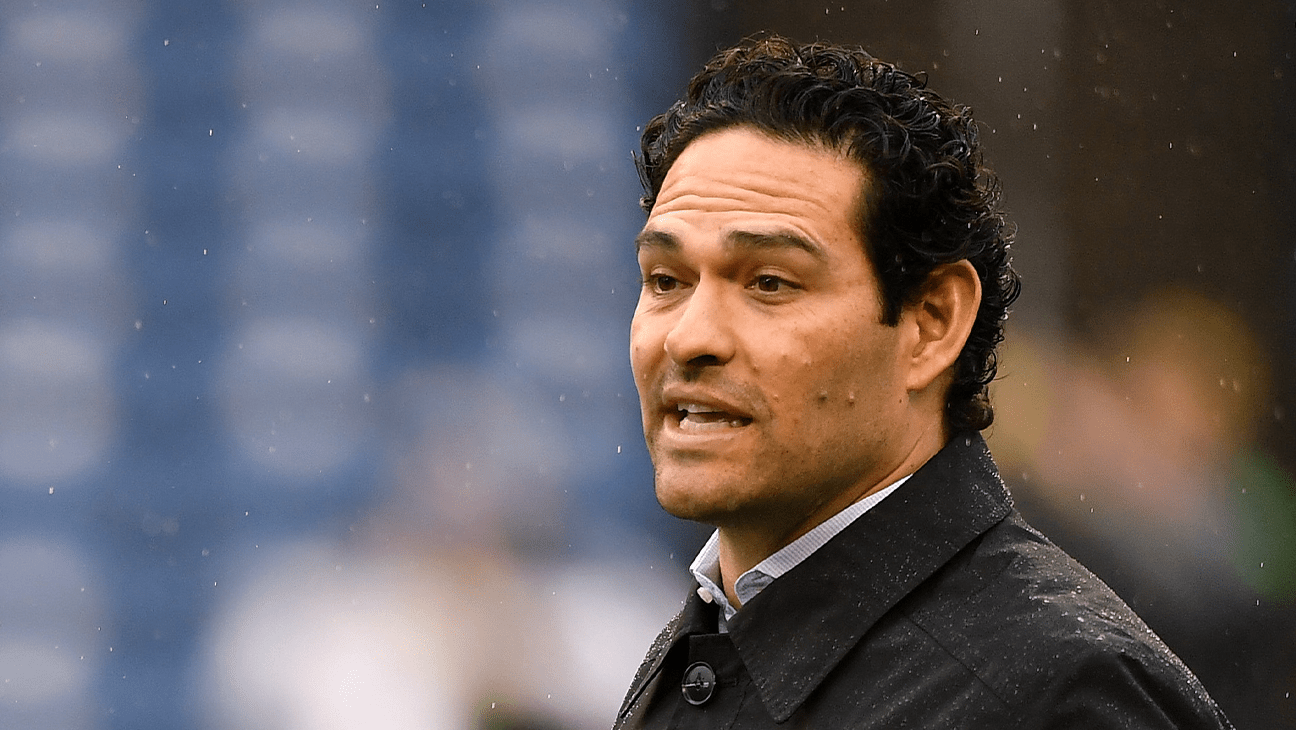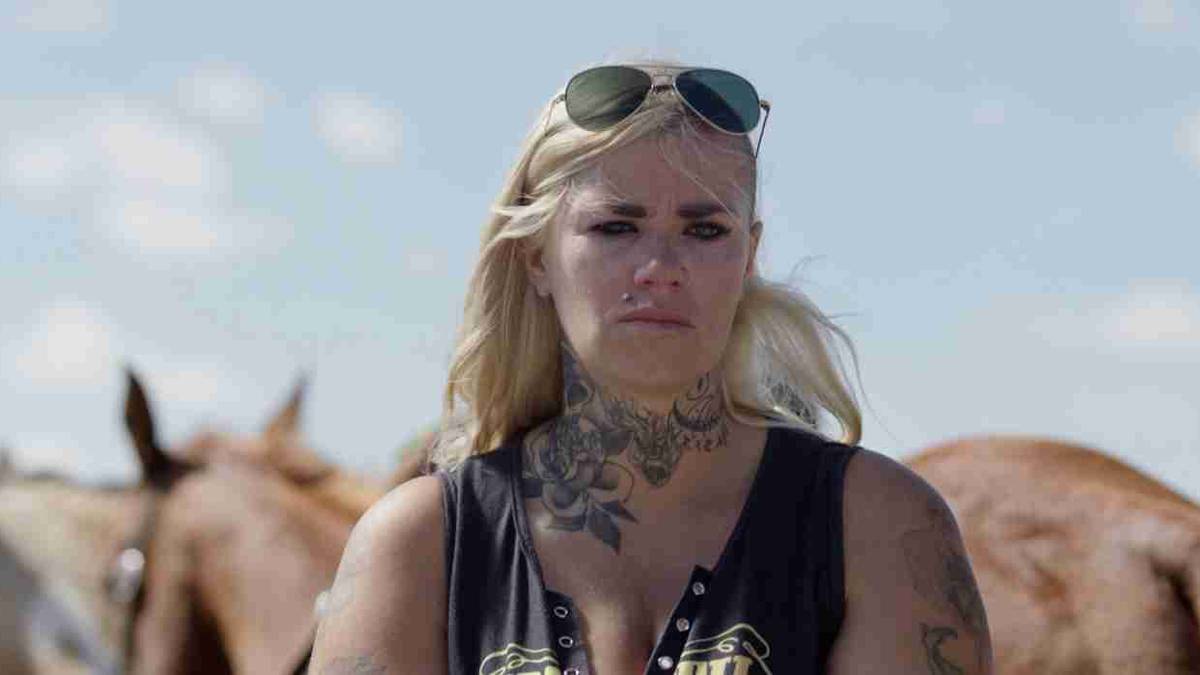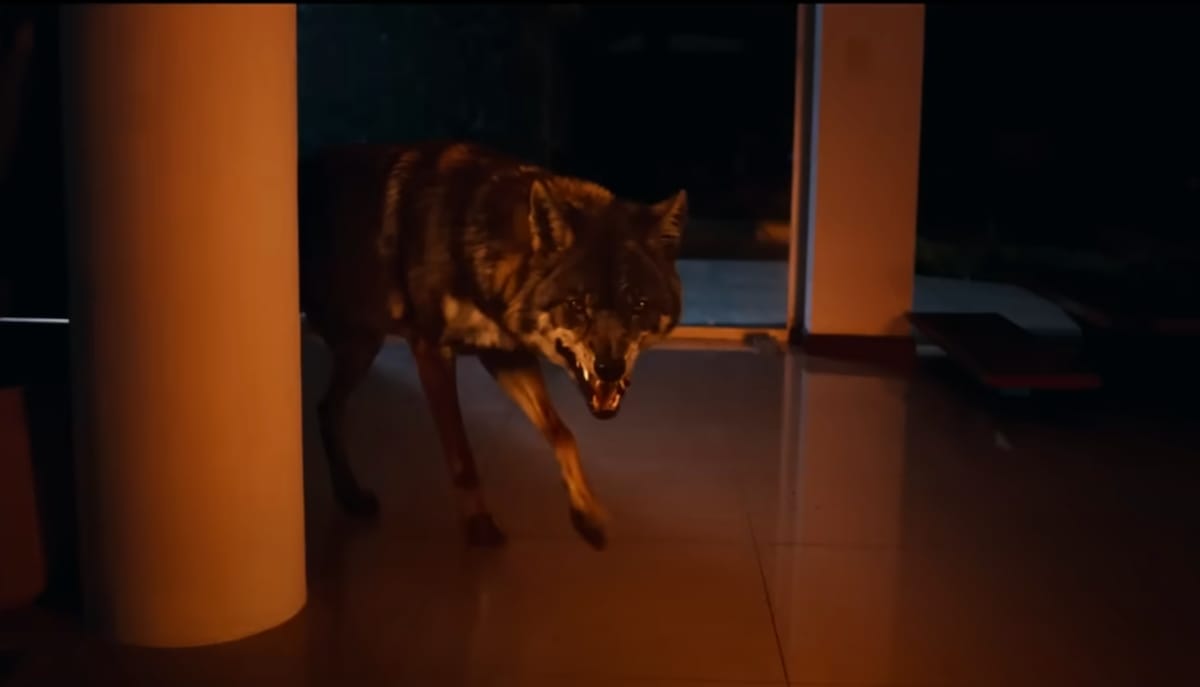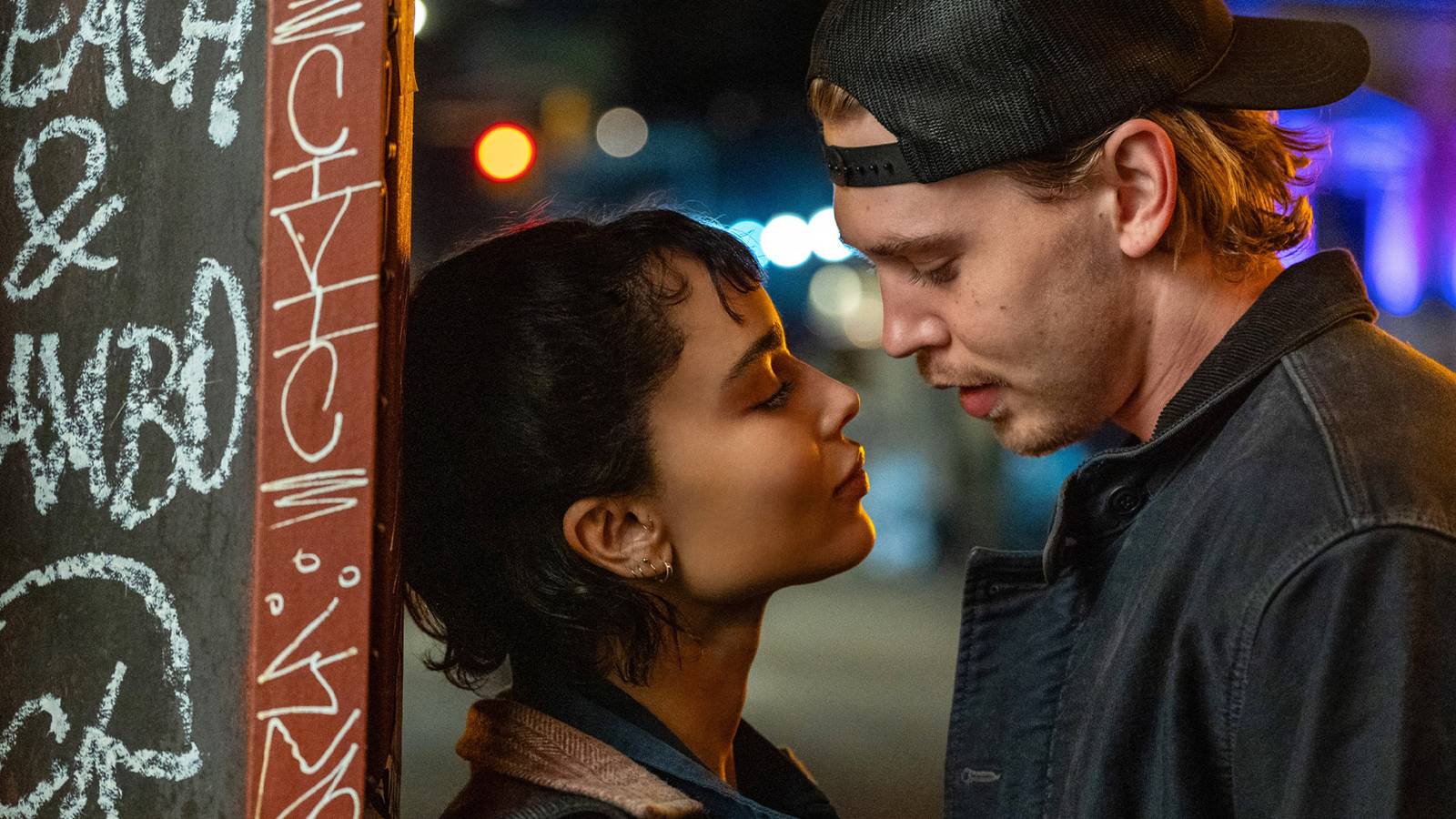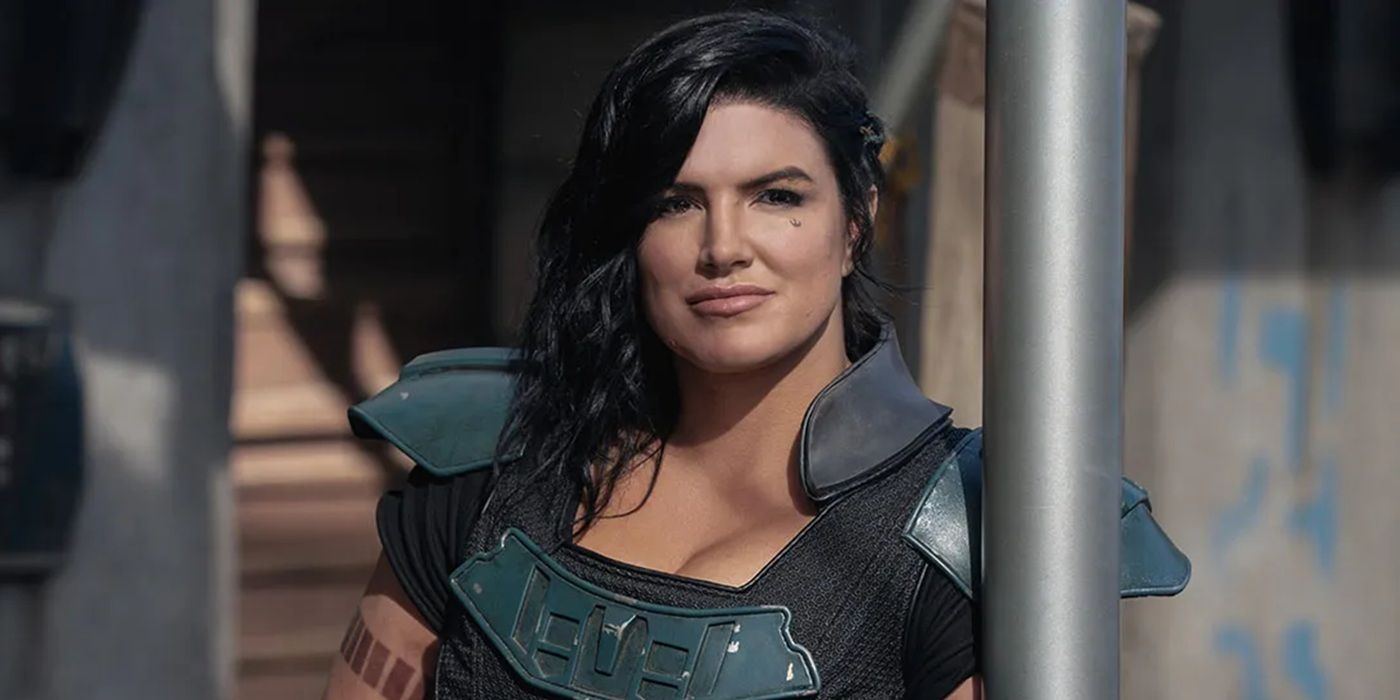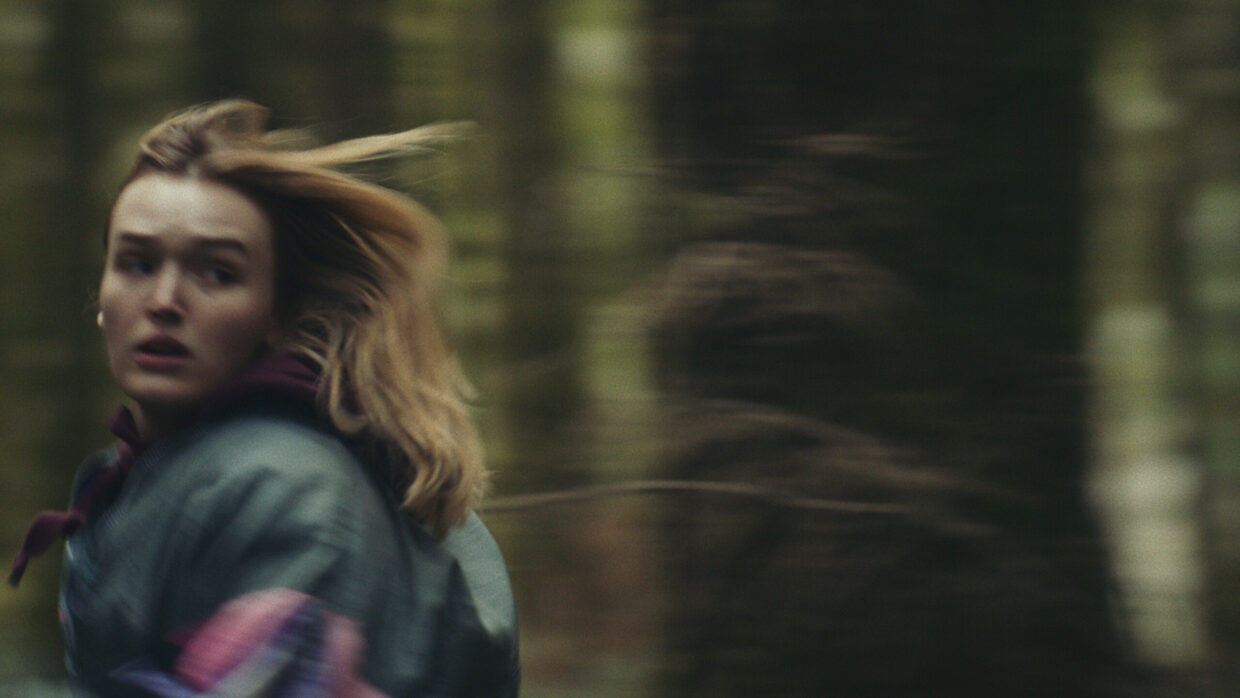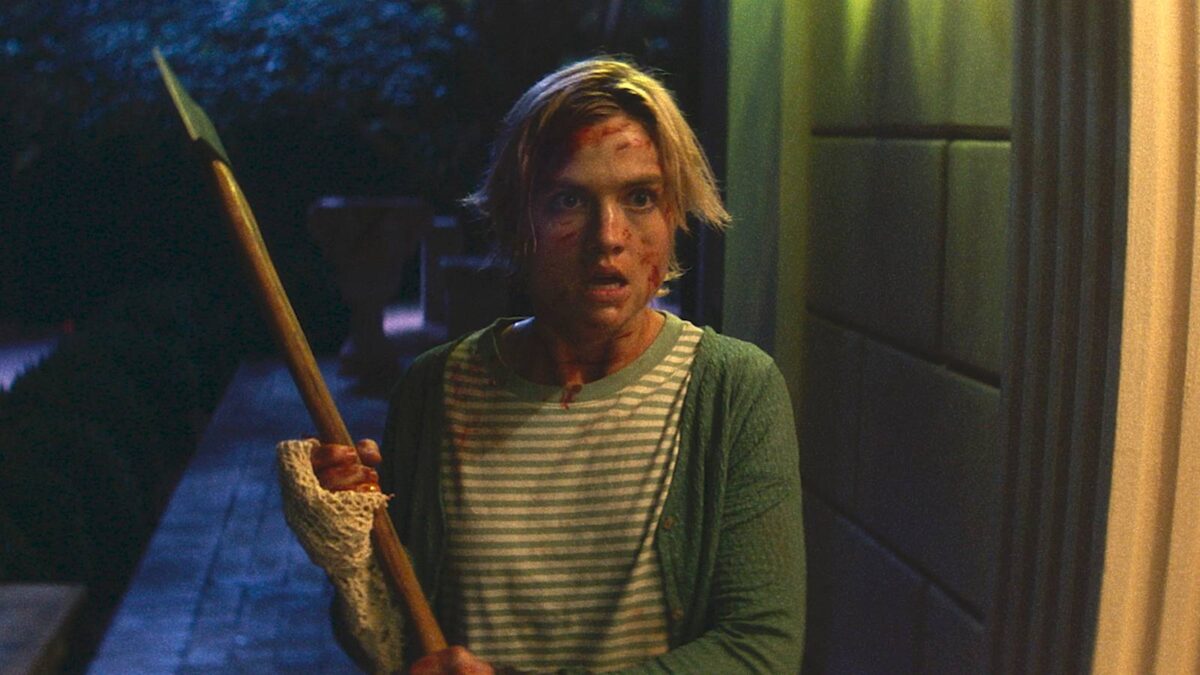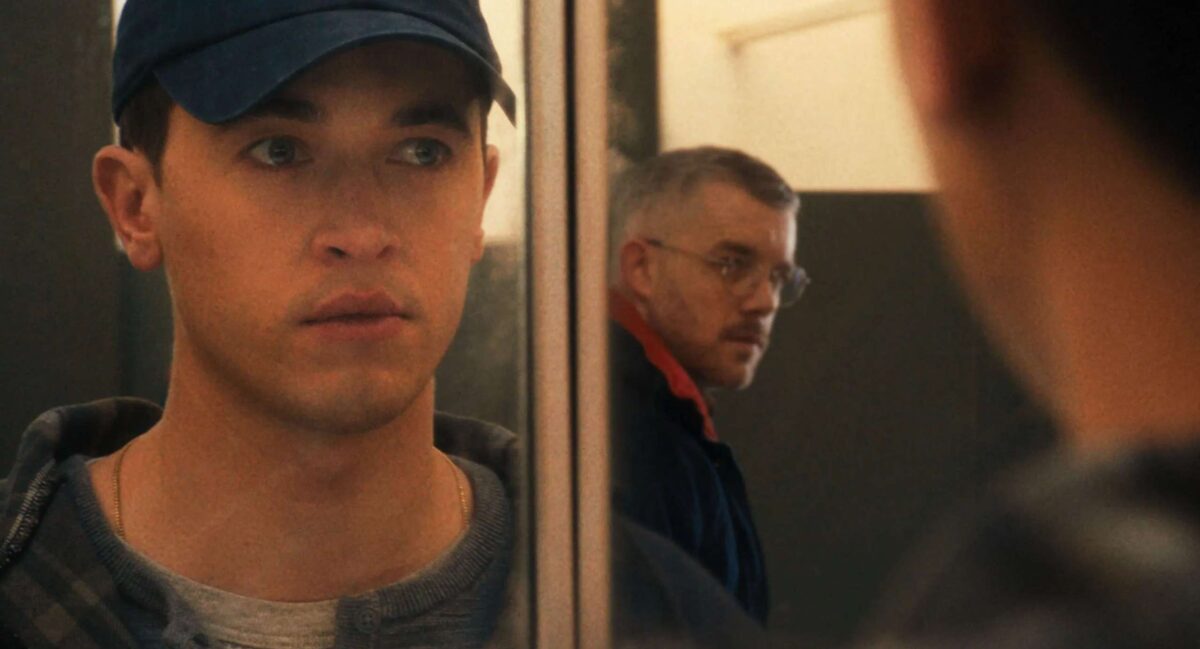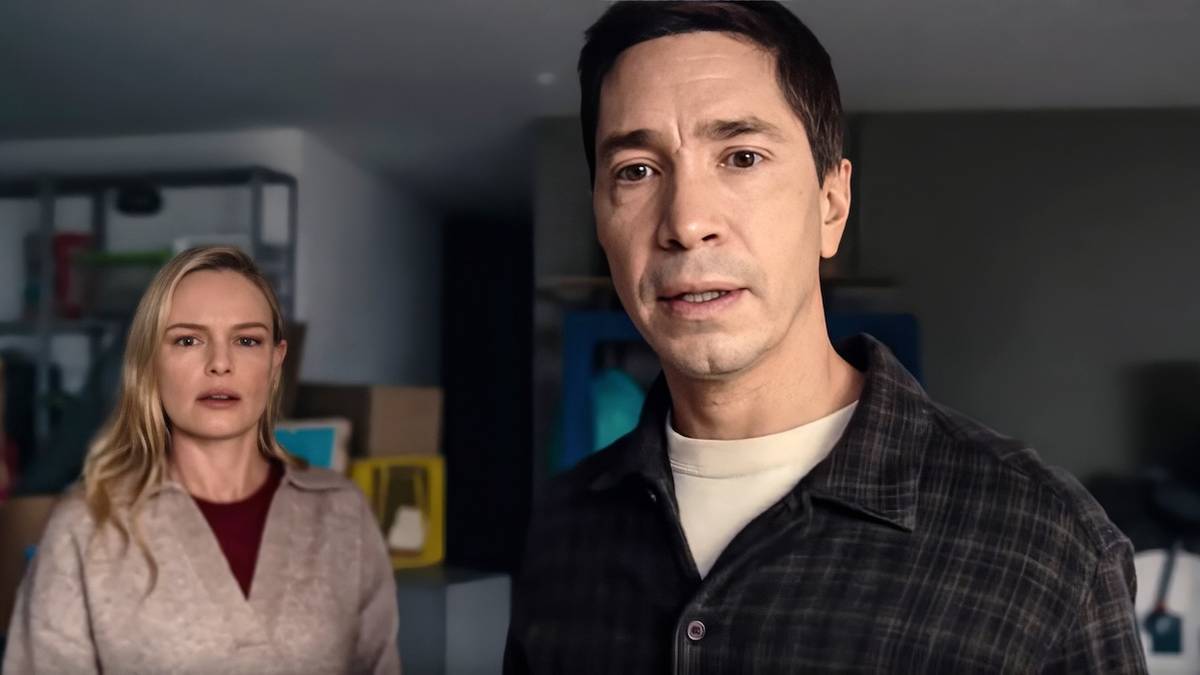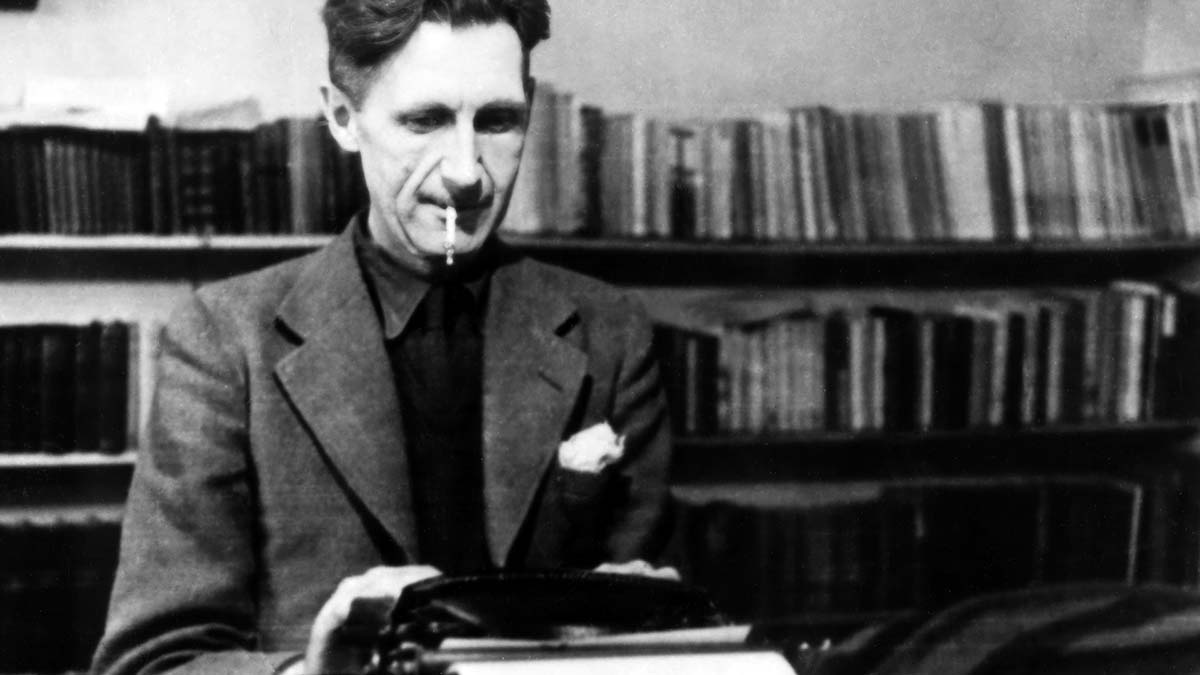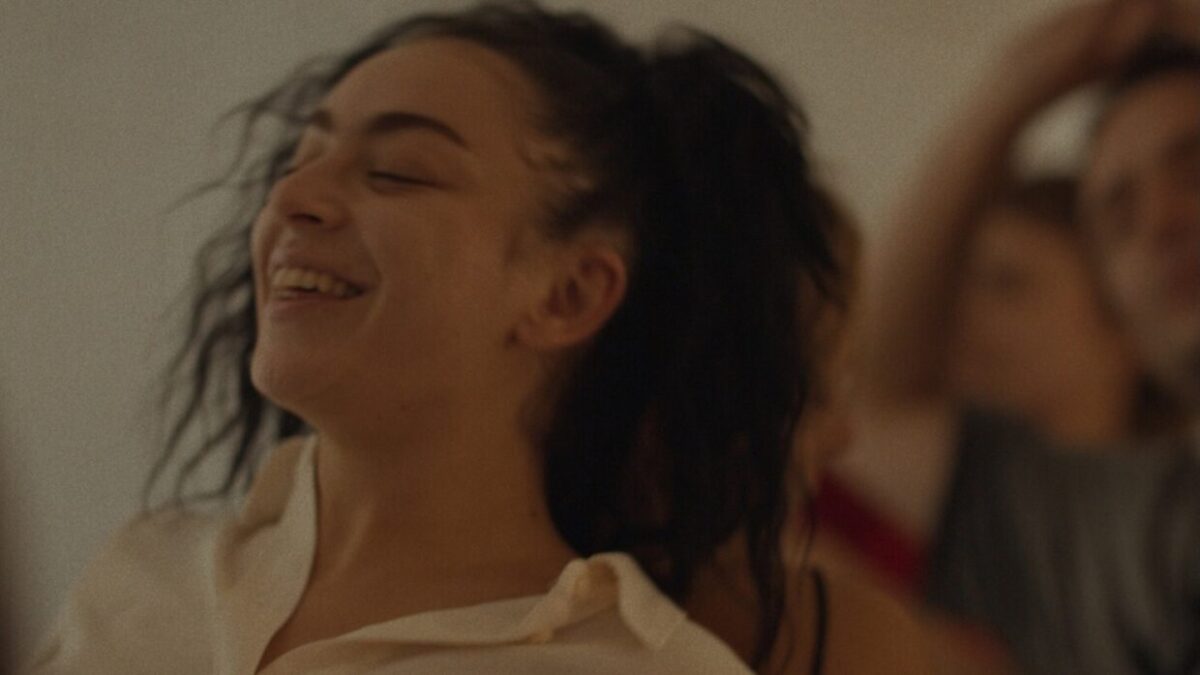
Charli xcx and Pete Ohs on making âErupcjaâ
Sep 8, 2025
Charli XCX in Erupcja
When Charli xcx walked into downtown New York bar Clandestino in May, 2024, she couldn’t have predicted that by the next day she would have committed to star in an independent film — especially one with no screenplay and scheduled to shoot just three months later, right before the start of her Brat tour. But that’s what happened when a chance encounter and free-flowing conversation led the pop star, actress and now writer and producer to say yes to the Toronto-premiering Erupcja, the latest “table of bubbles” film from Pete Ohs, a filmmaker who pursues both constant motion and a radical minimalism in his production practice.
As part of his inspiring table of bubbles method, Ohs makes one film per year with tiny crews — he’s his own DP, sound recordist and editor — and stories developed collaboratively with his actors. Having been introduced to Poland through its American Film Festival and the US in Progress program, Ohs had moved Warsaw at the end of 2023 and was looking to make a movie there, one that would be his “foreign film” following experiments in supernatural horror (Jethica) and indie comedy (Love and Work). And he’d work with collaborators old (actor, playwright and producer Jeremy O. Harris, actor Will Madden) and new (translator and cultural consultant Zofia Chlebowska and the Polish actress and writer Lena Góra), springboarding off an idea provided by another chance encounter, one with a man who described being stranded once in Warsaw after a volcano in Iceland grounded flights throughout Europe.
Said Harris, who introduced Charli to Ohs that night at the bar, “The thing that a lot of men don’t know about Charli is that she is a deep cinephile. When she’s not writing a song, she’s watching, and what was really cool was that I just told her about Pete’s filmmaking because I wanted to break the ice between these two friends of mine who I respect a lot and who come from two very different worlds, right? The minute they started talking about movies, I no longer had a space in the conversation.” (Indeed, Charli’s more recent public Letterbox’d account attests to her voracious screening habit and sharp taste.)
With Charli on board, a scenario began to form among the collaborators. The volcano set-up receded, operating now more metaphorically and making room for a more intimate tale of romance, friendship, and the liminal spaces in between. Charli is Bethany, traveling from England to Warsaw with her boyfriend Rob (Madden), who intends to propose. (As to why Warsaw, Bethany once told Rob that it’s a more romantic city than Paris, which is so obviously romantic that it’s not.) Unbeknownst to him, though, it’s also where Nel (Roving Woman’s Góra) lives, a free spirit currently working in a flower store and with whom Charli had an intense friendship with when they were both 16. Bethany’s been distant since, and Nell has her own on-again/off-again relationship with Ula (Ida’s Agata Trzebuchowska) to deal with. While Will plans a succession of romantic activities all over Warsaw — massages, fine dining, an afternoon at the museum — Bethany low-key stalks Nel, finally connecting with her as both attempt to understand what their teen relationship meant then and adult chemistry means now.
As is the case with Ohs’s table of bubbles films, that’s as far as the scenario got before shooting, with its remaining two thirds being developed by Ohs and his actors during production as they processed their scenes, responded in real time to the city, and fired ideas back and forth over late night texts.
It’d be natural for Ohs to be tempted to scale up his table of bubbles model after casting the world’s biggest pop star in one of the lead roles. For Charli, it’d be obvious to proceed with caution, to perhaps insist on traditional development, a bigger crew, and to push the project until after her tour. Fortunately for all of us, neither took the traditional path, and Erupcja’s many considerable strengths — its beautifully natural performances (Charli makes a fantastic screen debut here, and she and Góra have a lovely chemistry), its subtle and relaxed dramatization of characters whose inner lives are often opaque to each other, and its freewheeling depiction of Warsaw youth culture — are inseparable from the purity of its making. Five features in, Ohs has finely honed his method with this new picture, expanding his canvas both in terms of location but also theme and emotional expression. With an off-screen narrator spinning Bethany and Nel’s tale into the realm of fable, Erupcja will touch any romantic who’s gone on a trip to a place that can make you change.
I spoke to Charli and Ohs just before Toronto and began by asking Charli — who also produced Erupcja alongside Ohs, Harris, Luke Arreguin and Josh Godfrey — to give us her side of that Clandestino encounter.
Filmmaker: Pete, we have your side of the Clandestino meeting story in the pages of Filmmaker because you told it to Steve Dollar at US in Progress last year. But, Charli, I’d love to hear your side. You didn’t walk into that bar at 3:00 AM and expect to be part of a movie 24 hours later. What made you receptive to the idea of Pete and his “table of bubbles” style of filmmaking?
Charli xcx: The funny thing about that meeting is I was so drunk, so it’s definitely very blurry. I was staying at a hotel nearby and actually went to my hotel to go to bed. Then a friend who was also staying at the hotel texted me and was like, “Let’s go out again.” So, we went there, and I think it was 3:00 or 4:00 in the morning. I knew Jeremy — we’d sort of been friends for a while — and he was there with Pete, and you know that kind of way where you sort of bump into people at parties and hang out and stuff? I just remember that we sat down, and I think I was talking about wanting to act, and Jeremy was like, “Well, that’s funny, because this is Pete. He’s one of my favorite directors.” Jeremy is, I think, Pete’s number one fan, and he speaks so eloquently about his work. Pete was talking about how he had shot [his] previous films, and I was immediately fascinated by Pete’s process and the kind of rough outline for this sort of anti-love story in Warsaw. I was hooked from the jump, and I just thought it sounded like a really fun and unique project. And I’ve always like to approach my creative endeavors in a way that feels truly unique, and this definitely felt like that. So, I was kind of in and wanting to know more.
Filmmaker: Pete, the last time I interviewed you, you said these films often begin with conversations with the actors about what they want to do and what kind of characters they are interested in playing. Was that the case here? What was that sort of loose idea you initially had, and then how did it mutate when Charli and Lena and the other actors got involved?
Ohs: When we were talking at Clandestino, there wasn’t even the anti-love story yet. It was just a movie that was going to get made in Warsaw. And then the next day, when we started messaging, [Charli], you were like, “What ideas do you have?” And I was like, “One character speaks Polish, one character doesn’t, and somehow volcanoes are involved. That’s all I got.” And you were like, “Okay.” And then we started brainstorming together. But there was this also this exchange with Charli where I asked, “Do you think you’d want to play a character that’s sort of like Charli xcx? Or would you like to play something different, against type?” And you were immediately like, “I think it’d interesting to do something not like me.” And then this shy character of Bethany came right away. From there, we’re just sort of like, okay, we have a character named Bethany who’s shy and what is she doing in Warsaw? That’s the fun of making movies this way, where it just it all becomes about asking questions, finding what answers feel good, and just like moving through the story and discovering it as we go.
Charli xcx: I remember quite early on, we were talking a lot about the singer Clairo in comparison with Bethany. You were like, “I really like Clairo.” So we kept bringing Clairo into the mix when we were thinking about who Bethany was, which is funny, because, as a musician, she’s sort of like the complete opposite to who I am as a musician.
Ohs: The way we make these movies is not improv in that we do write lines, and we are doing multiple takes with the lines, the way a normal movie would. But there is an improv energy in that we are saying “yes,” which is such an improv thing to do. It’s like, “Clairo?” “Yes!” [It’s about] what feels right, what feels good enough to say “yes” to, and then, okay, let’s pick that up and keep running with it to see where else it goes.
Filmmaker: Pete, I’ve interviewed you before, and I thought I knew all about your process, but there’s one part I learned recently that I didn’t know, which is the midpoint break that you schedule in. You shoot for a week, then you stop, look at the footage, and think about what works, what doesn’t and what needs to change. What was that break point like after week one on Erupcja? Where were your heads and what needed to be course corrected?
Ohs: Well, this one was broken up a little bit differently. It was almost four days on, one day off, four days on, one day off, and four days on, as opposed to six and six. But at that first break, after we had shot for four days, we wrapped at like 6:00 AM. Some people went to some all-night rave. I did not go to that. But we had gotten to the point of the story where our two main characters, these two ladies, have connected. But there were still so many questions that we had yet to answer, so many doors that hadn’t been closed yet, so many possibilities that could still be taken.
Charli xcx: It was a really interesting time for me, the four-day break moment, because already that was the longest time I’d spent on any set, and obviously Pete’s process was so different. But I think back to the beginning, probably even at Clandestino, and one of the most important things he kept saying to me was, “You really have to trust the process and not question it too much.” Which is obviously sort of an overused phrase that can feel kind of annoying sometimes. But with this [approach], you really do have to. At points I did kind of think, oh my god, what is going on? What are we doing here? How will this all come together in a way that makes sense? At that four-day point, we had this day of rest, and Pete and I were texting, and I’m sure Pete and Jeremy were texting, and Pete and Lena. Everybody’s texting Pete giving their thoughts on where things should go. I think it was a combination of all of those conversations and Pete just being like, “Guys, we got this,” that led us into the next week of shooting. But what was really interesting to me is that the process felt like writing a song, where you kind of all get together and brainstorm and pull ideas out of the air and see what shoe fits. And, also, I suppose, like theater in the way we would sit and discuss [the scenes]. But, yeah, the four-day point was interesting because it was at that moment in particular that I really did have to lean into the “trust the process” catch phrase.
Filmmaker: So there were a lot of open possibilities at this point as to how the characters would resolve with each other. And what happens in the film, of course, is quite unexpected. Charli, did you have things that you wanted to happen concerning how your character’s arc would resolve?
Charli xcx: I really didn’t because there were so many moving points at play all the time, even down to logistical things. One day, I remember there was this big parade in Warsaw, and everybody was amping it up as this thing that was going to look fantastic and showcase Warsaw. And we go there, and it wasn’t at all what we expected. It was like, not cool — the vibes were off with the parade. I think we’d all hung on the expectation of it being this beautiful, grand thing, and it’s barely in the film.
But with Bethany and Nel, the interesting thing about their dynamic is that it’s so rooted in nostalgia. It’s kind of unclear what’s real and what isn’t for them. When you’re 16, you kind of romanticize your feelings and thoughts to this point where it’s kind of like, is it even real? I kind of think that’s what was going on with the characters and kind of with us when we were shooting as well. I also believe that after 10 days, there was this very logistical thing, and Bethany is gone. [Charli was boarded for ten days on the picture.]
Filmmaker: Charli, how did the Lord Byron monologue scene come about, where you recite his poem, “Darkness.” It’s a beautiful scene, and it comes at a very pivotal moment in the film.
Charli xcx: It was kismet, really. Once Pete and I had met and had been talking about the film, Jeremy and I randomly ended up at this GQ magazine party in the countryside in England, where I was DJ’ing. It was this countryside hotel, and they gave us all rooms. I went into my bedroom, and the radio was playing and this Byron poem was being recited on the radio. I was like, what is this? It was about fire and burning and I realized it was this poem, so I immediately texted Jeremy and was like, “This is crazy, maybe we incorporate this in the film in some way because it’s about this volcano and it was playing in the room and I’m about to see you.” But, you know, it was Pete who made the call after dinner one night that we should go and shoot that.
Ohs: I actually hadn’t heard that story. You had just texted me a screen grab of [the poem] from Wikipedia saying, “This is interesting how it connects to all these things we were talking about.” And that is the nature of the process — these things that are interesting, when and how are they going to funnel into the thing that we are making remains to be seen. When got to what was Charli’s last night before she was going to leave, it was also Bethany’s last night in the movie. We didn’t know exactly what the scene was even going to be, just that it was going to be at Nel’s apartment, and it was going to be Nell and Bethany together. We were at dinner, and then Jeremy and I went on a little walk to do a brainstorm session. He was like, “This is our last night with Bethany, it shouldn’t just be another scene. It should be something special.” That was a correct assessment. Then I remembered, thankfully, this poem that Charli had sent, and because we didn’t have time to question things, and it felt right, and there was enough kismet around it, I was like, “Let’s do it, and we’ll make it make sense later.” I came back into dinner, and, Charli, you were still eating. I was like, “Do you remember that poem? What if Bethany recited it?” And you were like, “Great, how long do I have?” We were like, “Two hours?” And you said, “One sec, I’m going to go memorize it.”
Charli xcx: I remember being in the bathroom at the restaurant, like frantically [rehearsing] it. I also remember that I’d only sent you the screen grab of that first page, and Will was like, “You guys, you know that this page ends in the middle of the sentence?”
Ohs: So there was the question, should we end it a sentence earlier, before that mid-sentence? And we were like, “No, this is what the universe gave us, this is what we have, this is what we’re doing.”
Filmmaker: I think this is the first table of bubbles film set in a city. Pete, you’re navigating all the ins and outs of shooting in a city, and obviously you’re working with Charli, who’s famous. Tell me about that dynamic. What did the city give you, and what did you have to wrangle or manage in Warsaw?
Ohs: I remember before we met there in the summer, we had a little meetup in New York, and, Charli, I was like, “How famous are you? Are you going to get recognized on the streets of Warsaw?” And you were like, “Probably not. When I’m not in my kind of world, and with my sunglasses and presenting as ‘Charli xcx,’ I can basically just exist.” And, generally, that was what we experienced. Yes, some people would recognize you at different points, but it wasn’t a constant thing. Mostly it was just people in Warsaw living their lives, and it was never actually a problem. And the people who did recognize you were your fans, and, you know, they get their photo and their moment with you, and they were happy to let us continue. So I never felt at all bothered by you being recognized.
Charli xcx: I made a Tiktok walking down the street [in Warsaw], which sort of exposed me a bit, but, in general, [things were] very chill. Also, I think my fans are really excited by this project. They’re desperate to know more and to see the film.
Filmmaker: Charli, you didn’t have security?
Charli xcx: Oh god no, I actually hate that. I think sometimes with security it’s actually like a beacon – it kind of signifies that something is happening. When we went to K Bar, maybe that was the most [I was recognized], and [we said], “Oh we are actually shooting a film and can’t chat right now.” In the [museum], we were trying to be a bit guerilla-style, and that didn’t really work out super well for us.
Ohs: The funny thing about the gallery is that we got in trouble because somebody didn’t know who you are. All the young museum employees saw that you were there, and at first I thought we were in trouble, but they just wanted selfies. And then other employees got word that you were there and they found us to get selfies. But then we moved into a room with an older museum docent who came up to us and was like, “What are you doing!” Of course, we film in the one room where somebody doesn’t recognize you.
But filming in a city is just, from the filmmaking aspect, logistically more challenging. People are staying in separate places, we’re having to coordinate how to get from here to there, whether we have cars or are going to write in the metro — all these sorts of things that come with the territory of filming in the city. But, again, I make movies with such a small group of people, where it’s me and the actors, and maybe one to three or four other people. There’s no sound guy, there’s no boom pole, there’s no filmmaking presence. It really looks like people just hanging out, and that allows us to fluidly navigate the city.
Filmmaker: Tell me about the addition of the narrator and why you added that element?
Ohs: It’s common for all films that, at the multiple stages of the process, it’s still being figured out what [the film] is. And this is very, very true with my films. We are making lots of decisions on set that intuitively feel right, and then as you put it together, you learn more about what this thing is, and you often learn the things that it’s missing. It doesn’t ever feel like that’s a problem — it’s just part of the process, because the film is not done until it’s done. As we were watching the movie without any voiceover, it was clear that something was missing, and then it was just a journey to find out what [the solution] was going to be. There was a version where we had Charli doing the voiceover that was Bethany’s poems she wrote when she was 16. Again, it didn’t work. But, you know, you explore and try things, put them out there and see how they feel. Analyze why they do and don’t feel good. Albert Birney suggested the idea of doing a voiceover similar to Jules and Jim, and that resonated, because we were already riffing on and talking about ‘60s and ‘70s French New Wave cinema. [The voiceover] felt nice as yet another element that is in conversation with that era of cinema and then, also, knowing that these women were telling fairy tales about themselves, and now this narrator feels like a guy telling a bedtime story. All of these elements started to feel really good, and [the voiceover] was the missing piece we had been waiting to discover.
Filmmaker: I definitely picked up that dialogue with French and Polish cinema. Pete, in the press notes, you talk about Celine and Julie Go Boating, which, Charli, I know is a favorite of yours. And I thought of Daisies, especially with your use of the color filters. Do each of you have final thoughts?
Ohs: I like making movies, and I like making movies this way. It’s really pure, almost innocent, naïve. It’s such play. It’s process over product. And it’s also acknowledging so much reality and truth, which is that you are not in control of anything, and when you try and pretend you are, you’re just like doing a disservice to life and existence. Making another movie feels good when it’s being made in a good way and for good reasons. I’m very grateful that these types of words resonated with Charli and that she came out and did it. The other thing I want to add is that I love when you, Charli, talk about how it feels like making music, because I am often trying to figure out how to make films more like making music. The feeling of being in a room and jamming and getting into a groove is so specific, special and magical, and so, in this other art form, how can we be as fluid and collaborative and pulling from who knows where, as music does?
Charli xcx: Echoing that, I am by no means a pro or anything, but I have experienced a few different film sets, and the one thing I definitely take away from this experience with Pete is the level of spontaneity that comes with making a “Pete Ohs movie,” and, yes, it is akin to making a painting or making a song. You pick up your tools and go wherever the wind blows you. I think that kind of spontaneity is really rare when it comes to making films, so I’m happy that I got to have that experience in what was one of the most hectic summers of my life. Getting these 10 days in Warsaw was really special and something that I’ll always remember. So thanks, Pete.
Publisher: Source link
Erotic Horror Is Long On Innuendo, Short On Climax As It Fails To Deliver On A Promising Premise
Picture this: you splurge on a stunning estate on AirBnB for a romantic weekend with your long-time partner, only for another couple to show up having done the same, on a different app. With the hosts not responding to messages…
Oct 8, 2025
Desire, Duty, and Deception Collide
Carmen Emmi’s Plainclothes is an evocative, bruising romantic thriller that takes place in the shadowy underbelly of 1990s New York, where personal identity collides with institutional control. More than just a story about police work, the film is a taut…
Oct 8, 2025
Real-Life Couple Justin Long and Kate Bosworth Have Tons of Fun in a Creature Feature That Plays It Too Safe
In 2022, Justin Long and Kate Bosworth teamed up for the horror comedy House of Darkness. A year later, the actors got married and are now parents, so it's fun to see them working together again for another outing in…
Oct 6, 2025
Raoul Peck’s Everything Bagel Documentary Puts Too Much In the Author’s Mouth [TIFF]
Everyone has their own George Orwell and tends to think everyone else gets him wrong. As such, making a sprawling quasi-biographical documentary like “Orwell: 2+2=5” is a brave effort bound to exasperate people across the political spectrum. Even so, Raoul…
Oct 6, 2025
